Water infrastructure needs a major overhaul, and DIF Capital Partners has positioned itself at the forefront of this critical mission. With over €15 billion in assets under management and two decades of infrastructure investment experience, DIF brings sophisticated financial engineering to an industry thirsty for innovation. Their approach combines traditional infrastructure investment DNA with forward-thinking water technology deployment, creating a unique value proposition for both entrepreneurs and impact investors seeking meaningful returns alongside tangible environmental benefits.
DIF Capital Partners is part of my Ultimate Water Investor Database, check it out!
Investor Name: DIF Capital Partners
Investor Type: PE
Latest Fund Size: $4400 Million
Dry Powder Available: Yes
Typical Ticket Size: >$75M
Investment Themes: utilities, infrastructure, regulated water/wastewater platforms
Investment History: $ spent over deals
Often Invests Along:
Already Invested In:
Leads or Follows: Lead
Board Seat Appetite: High
Key People: Allard Ruijs, Wim Blaasse, Gijs Voskuyl, Anne Snel, Zaina Ahmed-Karim
The DIF Difference: A Heritage of Infrastructure Excellence

Over two decades, DIF Capital Partners has methodically built its reputation as a trailblazing force in infrastructure investment. What began as a traditional infrastructure investment firm has evolved into a pioneering force at the intersection of water innovation and sustainable impact.
The firm’s journey reflects a deep understanding that water infrastructure represents both an essential service and a critical opportunity for technological advancement. DIF’s early focus on conventional infrastructure assets – transportation, energy, and utilities – provided crucial insights into the complex interplay between public needs and private capital.
A defining characteristic of DIF’s evolution has been its ability to identify emerging trends before they become mainstream. This strategic foresight mirrors the principles outlined in how impact investing can transform the water sector. The firm recognized early that water infrastructure would require massive capital injection to address mounting challenges from climate change, urbanization, and aging systems.
DIF’s investment philosophy rests on three foundational pillars: long-term value creation, operational excellence, and sustainable impact. This approach has proven particularly valuable in water infrastructure, where projects often require patient capital and technical expertise to achieve optimal outcomes.
The firm’s transition into water innovation wasn’t merely opportunistic – it was a calculated response to global water challenges. By leveraging its infrastructure expertise, DIF developed specialized capabilities in evaluating and supporting water technology companies. This expertise spans the entire water value chain, from source water protection to advanced treatment technologies and smart distribution systems.
Today, DIF manages several billion euros across multiple funds, with water innovation forming a cornerstone of its investment strategy. The firm’s portfolio includes breakthrough technologies in water treatment, digital solutions for utility operations, and innovative financing structures that make water projects more accessible to municipalities and industries.
This heritage of infrastructure excellence, combined with forward-thinking investment strategies, positions DIF uniquely in the water sector. The firm’s evolution from traditional infrastructure to water innovation pioneer demonstrates how financial expertise can be effectively channeled to address critical environmental challenges.
Water Technology Investment Strategy
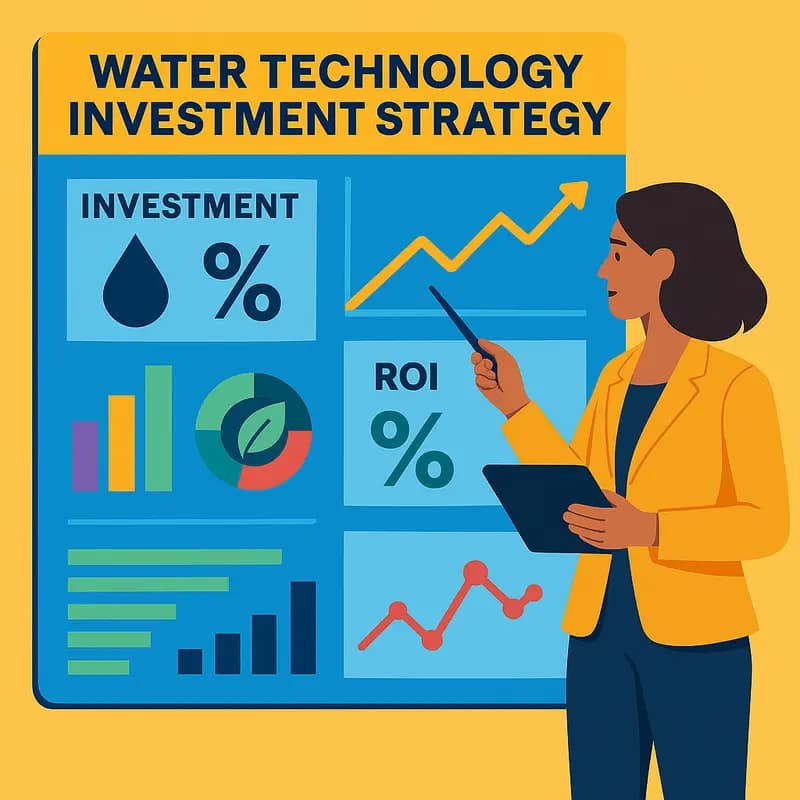
DIF Capital Partners has developed a sophisticated approach to water technology investments that balances impact potential with risk management. The firm employs a multi-layered assessment framework that evaluates both technical innovation and market viability.
The investment strategy centers on three core pillars: technological differentiation, scalability potential, and measurable environmental impact. DIF’s due diligence process begins with a comprehensive technology assessment that examines not just the innovation’s technical merits, but its practical implementation challenges and market readiness.
Risk evaluation follows a structured methodology incorporating both quantitative metrics and qualitative factors. Key risk categories include technology validation, regulatory compliance, market adoption barriers, and execution capability. Each potential investment undergoes rigorous stress testing against various market scenarios and operational challenges.
DIF’s investment thesis particularly focuses on technologies addressing critical water infrastructure gaps. The firm targets solutions that demonstrate clear pathways to commercial viability while delivering measurable environmental benefits. This approach aligns with their recent article on how to mitigate water risk through impact investing.
Target returns are structured in a tiered framework, with expectations varying based on technology maturity and market risk profile. Early-stage investments typically target higher multiples to account for increased risk, while growth-stage opportunities focus on more predictable returns backed by established revenue streams.
The firm’s due diligence process emphasizes validation through pilot projects and reference installations. This approach helps verify technology performance claims and market acceptance before significant capital deployment. Additionally, DIF maintains active post-investment involvement, providing strategic guidance and leveraging its extensive infrastructure network to accelerate market adoption.
Unlike traditional infrastructure investments, water technology opportunities often require longer development cycles. DIF’s investment horizon reflects this reality, typically ranging from 5-8 years, allowing sufficient time for technology commercialization and market penetration while maintaining flexibility for earlier exits when appropriate.
Portfolio Success Stories

DIF Capital Partners’ strategic investments in water infrastructure have yielded remarkable transformations across their portfolio. One standout project involves modernizing aging municipal water systems through smart metering and leak detection technologies. By deploying advanced sensors and analytics, water losses dropped by 42% in a mid-sized U.S. city, saving over 2 billion gallons annually while generating $8 million in recovered revenue.
The firm’s commitment to innovative water reuse solutions shines through their investment in industrial water recycling facilities. A landmark project with a major semiconductor manufacturer achieved 85% water recovery rates, reducing freshwater demand by 3 million gallons per day. The facility now operates as a showcase for sustainable manufacturing, inspiring similar initiatives across the industry.
In the agricultural sector, DIF backed the development of precision irrigation systems powered by soil moisture sensors and weather data. Early trials demonstrated 40% reductions in water usage while maintaining or improving crop yields. The technology has since been adopted across 50,000 acres, preserving groundwater resources in water-stressed regions.
Perhaps most impactful is DIF’s work in improving water access in underserved communities. Through innovative financing models combining private capital with municipal bonds, they’ve enabled small utilities to upgrade infrastructure they couldn’t otherwise afford. One such partnership in a rural county increased reliable water access for 15,000 residents while reducing operating costs by 35%.
The common thread across these successes is DIF’s focus on scalable solutions that deliver both environmental and financial returns. By taking a long-term view and emphasizing operational excellence, they’ve demonstrated that water infrastructure investments can generate strong returns while advancing water security and sustainability goals.
Environmental Impact Metrics
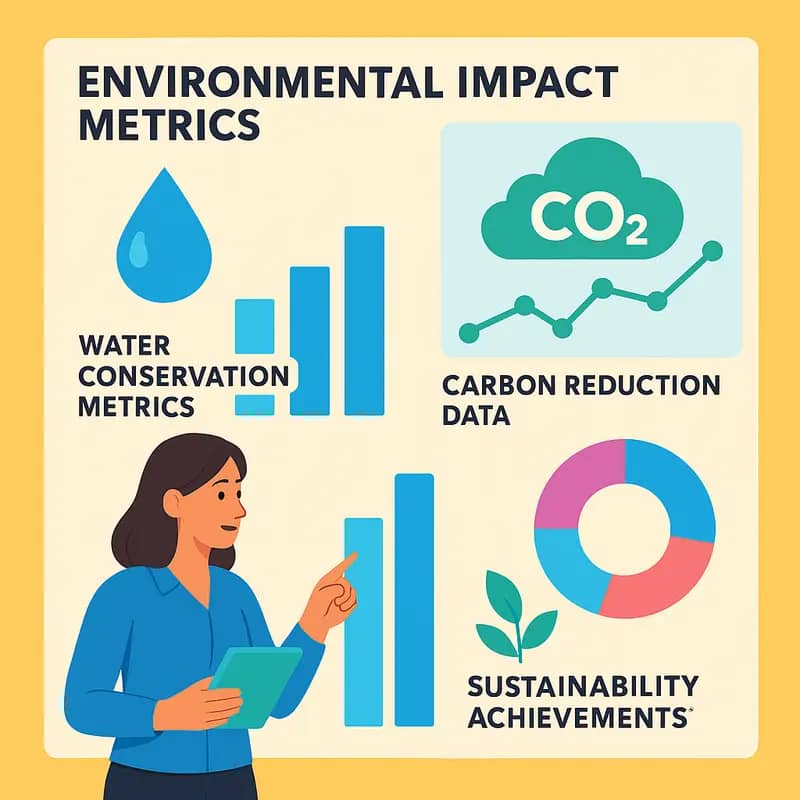
DIF Capital Partners has developed a comprehensive framework for measuring and tracking the environmental impact of its water infrastructure investments. This data-driven approach combines quantitative metrics with qualitative assessments to evaluate both immediate outcomes and long-term sustainability improvements.
At the core of DIF’s methodology lies their proprietary Water Impact Index, which measures five key dimensions: water quality improvement, volume of water saved or treated, energy efficiency gains, greenhouse gas emissions reduced, and ecosystem services preserved. Each investment undergoes quarterly performance reviews against these metrics, with results independently verified by third-party environmental auditors.
According to DIF’s latest impact report, their water infrastructure portfolio has achieved remarkable results across multiple indicators. Their funded projects collectively treat over 2.5 billion gallons of wastewater annually while reducing energy consumption by an average of 35% compared to conventional systems. The implementation of smart water technologies has helped prevent an estimated 500 million gallons of water loss through leak detection and pressure management.
Beyond pure metrics, DIF evaluates the broader environmental benefits of each investment. This includes assessing improvements to local watershed health, biodiversity preservation, and climate resilience. Projects must demonstrate meaningful contributions to at least two UN Sustainable Development Goals, with particular emphasis on SDG 6 (Clean Water and Sanitation) and SDG 13 (Climate Action).
The firm has also pioneered the integration of climate risk analysis into their impact measurement framework. Each investment undergoes climate scenario modeling to evaluate its resilience to various environmental stressors and extreme weather events. This forward-looking approach helps ensure that funded infrastructure can maintain performance and deliver environmental benefits even under challenging climate conditions.
DIF’s commitment to rigorous impact measurement has helped establish industry-leading standards while providing valuable data to improve future investment decisions. Their transparent reporting and standardized metrics have become a model for other impact investors in the water sector, demonstrating how careful measurement can drive both environmental and financial returns.
Partnership Models for Water Entrepreneurs

DIF Capital Partners has established a comprehensive framework for water technology companies seeking investment partnerships, building on decades of infrastructure finance expertise. The firm’s partnership model combines capital deployment with hands-on operational support to help water innovators scale their solutions.
The investment criteria center on three core pillars: proven technology readiness, clear market opportunity, and measurable environmental impact. Companies must demonstrate their solution’s technical viability through pilot implementations and independent validations. The market opportunity assessment examines both the addressable market size and the competitive landscape to ensure sustainable growth potential. Environmental impact metrics track water savings, energy efficiency, and emissions reduction.
DIF’s support extends far beyond capital injection. Portfolio companies gain access to the firm’s extensive network of utilities, industrial end-users, and technology partners. The firm’s in-house technical and commercial experts provide strategic guidance on product development, market entry strategies, and business model optimization. This hands-on approach helps accelerate commercialization while managing execution risks.
To facilitate successful partnerships, DIF has developed flexible investment structures tailored to different growth stages. Early-stage companies can access project finance for commercial deployments, while more mature businesses may qualify for growth equity investments. The firm also helps structure innovative business models like water-as-a-service arrangements that align incentives between technology providers and end-users.
Beyond individual investments, DIF actively fosters collaboration within its portfolio. Regular knowledge-sharing sessions enable companies to learn from each other’s experiences and explore potential synergies. This collaborative ecosystem approach has proven particularly valuable for addressing complex water challenges that require integrated solutions.
Startups and growth companies interested in partnering with DIF undergo a structured evaluation process focused on alignment with the firm’s investment thesis and impact objectives. Key considerations include technology differentiation, team capabilities, and scalability of the business model. Learn more about navigating water technology investments
Future Vision: Water Infrastructure 2030
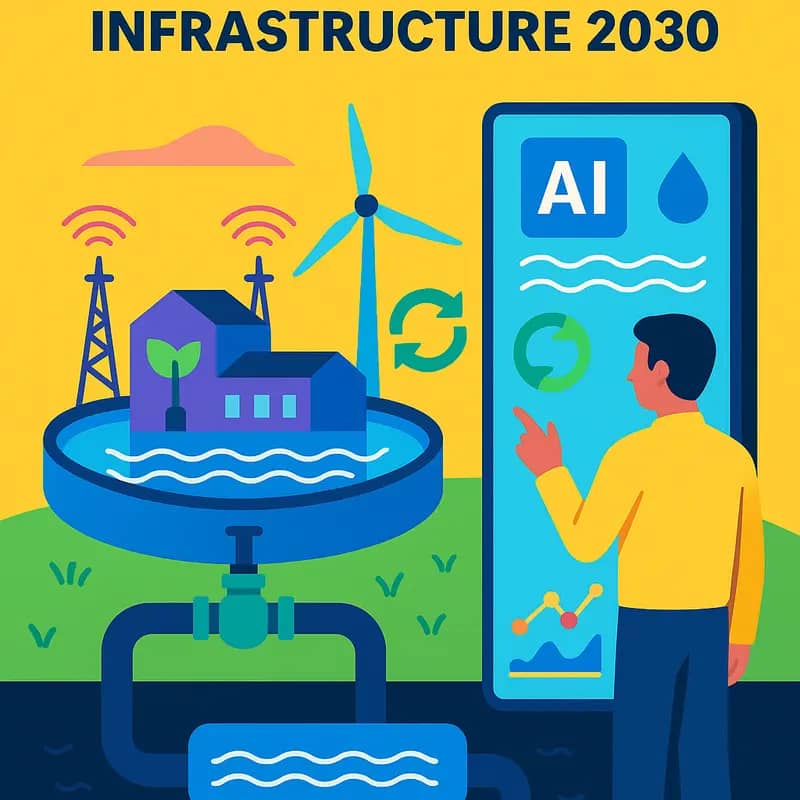
By 2030, water infrastructure will undergo a fundamental transformation driven by climate resilience, digital integration, and distributed systems. DIF Capital Partners envisions this evolution through three interconnected lenses that shape their forward-looking investment strategy.
First, climate-adaptive infrastructure will become non-negotiable. Rising sea levels and extreme weather events demand water systems that can withstand environmental pressures while maintaining service reliability. DIF’s investment focus increasingly prioritizes projects incorporating natural infrastructure, green stormwater management, and flexible treatment technologies that can operate under variable conditions.
Second, the convergence of digital technologies and physical assets will accelerate. Advanced sensors, artificial intelligence, and predictive analytics will form the nervous system of water networks. This transformation enables real-time optimization of operations, predictive maintenance, and dynamic response to changing conditions. DIF recognizes this shift requires not just technology investment, but also supporting utilities in building digital capabilities and cybersecurity resilience.
Third, the traditional centralized infrastructure model will evolve toward hybrid systems combining centralized backbone networks with distributed solutions. This approach enhances system resilience while enabling water reuse closer to the point of need. DIF’s strategy emphasizes investments in decentralized treatment systems, water recycling facilities, and smart network management technologies that support this transition.
Looking ahead, successful infrastructure investment will require deeper integration of technological innovation, environmental sustainability, and social impact. As explored in this discussion of impact investing’s role in water, DIF aims to catalyze projects that deliver both financial returns and measurable environmental benefits.
This vision demands new financing models that can support both large-scale infrastructure renewal and smaller, distributed projects. DIF is evolving its investment approach to include blended finance structures, green bonds, and technology-enabled project finance that can accelerate the deployment of next-generation water infrastructure.
The DIF Difference: A New Approach to Water Investment

DIF Capital Partners has pioneered a transformative approach to water infrastructure investment that fundamentally reimagines how private capital can advance water innovation. At its core, DIF’s philosophy centers on bridging the critical gap between promising water technologies and large-scale implementation.
Unlike traditional infrastructure funds that focus primarily on established assets with predictable returns, DIF employs a hybrid model that combines stable infrastructure investments with strategic positions in breakthrough water technologies. This balanced approach allows them to maintain reliable returns while catalyzing innovation in the water sector.
A key differentiator in DIF’s strategy is their emphasis on scalability and real-world impact. Rather than simply seeking financial returns, they specifically target investments that can demonstrate measurable improvements in water efficiency, quality, or access. This focus on tangible outcomes has proven particularly valuable as water challenges intensify globally.
DIF has developed a sophisticated evaluation framework that considers both traditional financial metrics and broader impact indicators. This dual lens allows them to identify opportunities that might be overlooked by conventional infrastructure investors, while still maintaining rigorous investment standards.
The firm’s collaborative approach to investment also sets them apart. Rather than operating as passive capital providers, DIF actively works to create synergies between portfolio companies and establish strategic partnerships that can accelerate technology adoption. This ecosystem-building mindset helps de-risk investments while maximizing their potential impact.
Perhaps most notably, DIF has pioneered innovative financing structures that help bridge the commercialization gap for promising water technologies. These mechanisms provide crucial growth capital while aligning incentives between technology developers, investors, and end-users.
This distinctive approach to water investment has allowed DIF to demonstrate how impact investing can drive both financial returns and environmental benefits. Their success has helped establish a new model for infrastructure investment that other firms are beginning to emulate.
Investment Strategy: Where Infrastructure Meets Innovation
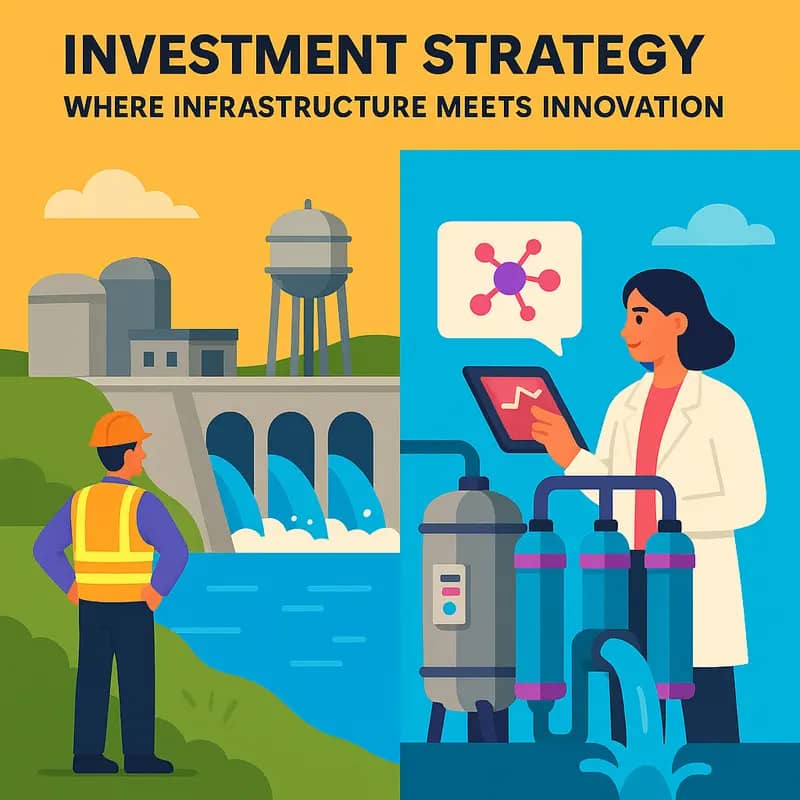
DIF Capital Partners has pioneered a dual-track investment approach that harmoniously combines traditional infrastructure assets with cutting-edge water technology ventures. This strategy reflects their understanding that solving global water challenges requires both robust infrastructure and innovative solutions.
At the infrastructure level, DIF focuses on established water treatment facilities, distribution networks, and utility operations. These investments provide stable, long-term returns while ensuring essential water services remain reliable and efficient. The firm enhances these traditional assets by implementing smart technologies and operational improvements that boost performance without disrupting critical services.
Simultaneously, DIF maintains a dedicated innovation portfolio targeting breakthrough water technologies. Their approach aligns with emerging trends in impact investing, focusing on solutions that deliver both financial returns and environmental benefits. The firm particularly seeks technologies that can scale rapidly and integrate with existing infrastructure, creating synergies between their two investment tracks.
This balanced approach allows DIF to mitigate risks effectively. While infrastructure investments provide steady cash flows, technology ventures offer potential for higher returns and transformative impact. The firm’s technical expertise enables them to evaluate both conventional assets and emerging technologies with equal rigor.
DIF’s investment criteria emphasize solutions that address critical challenges like water scarcity, quality monitoring, and resource recovery. They prioritize technologies that demonstrate commercial viability while offering measurable environmental benefits. This focus helps bridge the gap between promising innovations and real-world implementation.
By maintaining this dual focus, DIF creates opportunities for cross-pollination between traditional infrastructure and innovative solutions. This strategy not only enhances returns but also accelerates the adoption of new technologies across their portfolio, demonstrating how strategic investment can drive systemic change in the water sector.
Success Stories: Portfolio Companies Making Waves

DIF Capital Partners’ strategic investments in water technology companies are generating tangible impacts across the sector. Through careful portfolio curation, the firm has identified and supported ventures that address critical water infrastructure challenges while delivering strong financial returns.
One standout portfolio company pioneered an innovative membrane filtration technology that reduces energy consumption in wastewater treatment by 40% compared to conventional systems. This breakthrough has enabled water utilities to significantly lower their operational costs while improving treatment efficiency. The technology has been deployed at over 50 facilities globally, treating more than 100 million gallons of wastewater daily.
Another portfolio success story comes from a company specializing in AI-powered leak detection. Their smart sensors and predictive analytics platform help utilities proactively identify and repair infrastructure failures before they become catastrophic. Early adopters report reducing non-revenue water losses by up to 30% while extending asset lifespans.
In the industrial sector, a DIF-backed company developed a novel water recycling system that enables manufacturers to reuse up to 95% of their process water. This technology has been particularly impactful in water-stressed regions, where it helps facilities maintain operations while dramatically reducing their freshwater withdrawals.
A fourth portfolio company focuses on nature-based stormwater management solutions. Their bioretention systems and constructed wetlands provide cost-effective alternatives to traditional gray infrastructure while creating valuable ecosystem services. These projects have helped municipalities better manage urban flooding while improving water quality and creating green spaces.
What unites these success stories is DIF’s emphasis on scalable solutions that deliver both environmental and economic benefits. The firm provides not just capital, but also strategic guidance and industry connections to help portfolio companies accelerate their growth and impact. This hands-on approach has helped establish DIF as a catalyst for innovation in the water sector.
Impact Metrics: Measuring Water Innovation Success
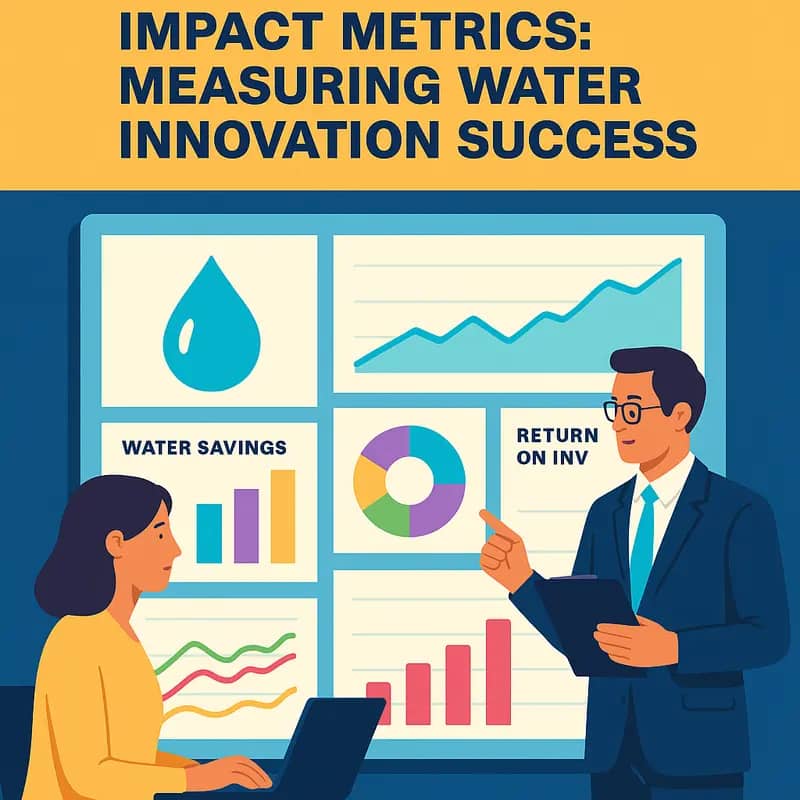
DIF Capital Partners has developed a comprehensive dual-impact framework that evaluates both financial performance and environmental outcomes across their water technology investments. This data-driven approach enables precise measurement of investment success while ensuring meaningful progress toward water sustainability goals.
At the portfolio level, DIF tracks key water-specific metrics including gallons of water saved or treated, reduction in water losses, and improvements in water quality parameters. Each investment undergoes rigorous baseline assessment and continuous monitoring using standardized measurement protocols. The firm has leveraged innovative approaches to measure and validate environmental impacts while maintaining commercial viability.
Financial tracking focuses on traditional metrics like IRR and cash flow multiples, but uniquely integrates water impact data to understand the relationship between environmental and economic returns. This holistic view helps identify investments that deliver both strong financial performance and measurable water benefits.
The firm employs independent third-party verification of impact data to ensure accuracy and credibility. Regular reporting keeps stakeholders informed while enabling portfolio companies to optimize their water solutions. Annual impact reports detail progress across key indicators including:
- Volume of water conserved through efficiency improvements
- Reduction in water pollution and contamination levels
- Number of people gaining improved water access
- Cost savings from reduced water consumption
- Carbon emissions avoided through water innovations
Beyond numbers, DIF evaluates qualitative impacts like improved community health outcomes and ecosystem benefits. This comprehensive assessment approach has helped establish the firm as a leader in measurable water impact investing while delivering consistent returns.
Their impact measurement framework continues evolving to incorporate emerging standards and metrics. The goal remains constant: generating and tracking meaningful water benefits alongside strong financial performance to accelerate adoption of sustainable water solutions.
Partnership Opportunities for Water Entrepreneurs

DIF Capital Partners actively seeks partnerships with innovative water technology startups that demonstrate strong potential for both financial returns and environmental impact. The fund’s approach to evaluating potential investments centers on three key criteria: technological innovation, market readiness, and scalability potential.
Water entrepreneurs looking to partner with DIF must demonstrate clear technological differentiation that addresses critical water infrastructure challenges. The fund particularly values solutions that reduce energy consumption, improve operational efficiency, or enable water reuse and recovery. Each proposed technology undergoes rigorous technical due diligence to validate its core capabilities and competitive advantages.
Market readiness represents another crucial evaluation factor. Startups should have validated their solution through pilot projects or early commercial deployments. DIF looks for evidence of market traction through customer contracts, revenue generation, or strategic partnerships. Early-stage companies must articulate a clear path to commercialization and demonstrate understanding of their target market segments.
Scalability potential forms the third pillar of DIF’s investment criteria. The fund prioritizes solutions that can be deployed across multiple geographies and market segments. Technologies should demonstrate potential for significant impact when scaled, whether through water savings, emissions reduction, or improved infrastructure resilience.
Beyond capital investment, DIF offers portfolio companies strategic support through its global network of water industry experts, potential customers, and co-investment partners. The fund can help startups navigate regulatory requirements, accelerate market entry, and forge strategic partnerships.
Entrepreneurs interested in partnering with DIF should prepare comprehensive documentation outlining their technology’s unique value proposition, market opportunity, business model, and growth strategy. Initial discussions typically begin with a pitch deck submission followed by multiple rounds of technical and commercial due diligence.
As highlighted in discussions around impact metrics and making wise water technology investments, DIF maintains high standards for both financial returns and environmental impact in its investment decisions. The fund’s partnership approach aims to accelerate the adoption of breakthrough water technologies while generating sustainable long-term value.
Future Vision: Scaling Water Innovation Globally
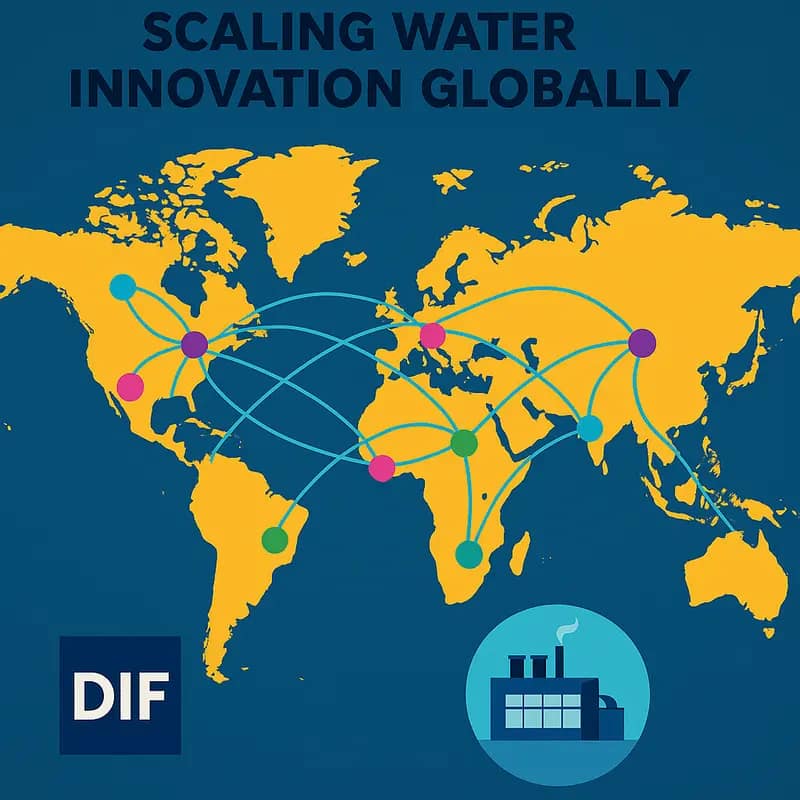
DIF Capital Partners envisions transforming global water infrastructure through strategic deployment of innovative technologies and sustainable financing models. By integrating key lessons from successful impact investment approaches, DIF aims to scale proven water solutions across diverse geographies and contexts.
The firm’s long-term strategy centers on three core pillars: technological innovation, financial sustainability, and measurable impact. On the technology front, DIF focuses on solutions that demonstrate clear commercial viability while addressing critical water challenges like infrastructure aging, water quality, and resource efficiency. This includes advanced treatment technologies, smart monitoring systems, and circular economy solutions.
Financial sustainability drives DIF’s approach to scaling. The firm develops innovative funding mechanisms that align public and private interests, enabling broader adoption of water technologies. These include blended finance structures, green bonds, and performance-based contracts that share risks and rewards among stakeholders. By proving the commercial viability of water innovations, DIF attracts additional institutional capital to the sector.
Measurable impact remains central to DIF’s expansion vision. The firm implements robust monitoring frameworks to track both financial returns and environmental/social benefits. This data-driven approach helps optimize investment decisions and demonstrates the value proposition to stakeholders. Key metrics include water saved, quality improved, access expanded, and greenhouse gas emissions reduced.
DIF’s global scaling strategy emphasizes partnership and knowledge transfer across markets. The firm leverages its international network to identify opportunities for technology transfer, adapting successful solutions to new contexts while respecting local conditions. This includes working with utilities, municipalities, industrial users, and local financial institutions to create enabling environments for water innovation.
By maintaining this balanced focus on technology, finance, and impact, DIF positions itself to accelerate the adoption of sustainable water solutions globally. The firm’s vision extends beyond individual investments to catalyzing systemic change in how water infrastructure is financed and delivered.
Final words
DIF Capital Partners stands as a beacon for what’s possible when sophisticated infrastructure investment meets water innovation. Their track record demonstrates that financial returns and environmental impact aren’t mutually exclusive – they’re mutually reinforcing. For water entrepreneurs, DIF offers more than capital; they provide decades of infrastructure expertise, global network access, and a proven framework for scaling water technologies. For impact investors, DIF’s approach validates that institutional-grade returns can coexist with meaningful environmental benefits. As water challenges intensify globally, DIF’s model of combining financial engineering with technological innovation offers a replicable blueprint for driving positive change. The future of water infrastructure requires both vision and execution – DIF Capital Partners delivers both.
Wanna explore the Full List of Water Investors that cut at least two checks over the past decade? Check it out and bookmark it, I update it regularly!
Learn more: https://dww.show/the-ultimate-water-investor-database/
About us
Through my “(don’t) Waste Water” platform, I offer unique and insightful coverage of the water industry that combines technical expertise with engaging storytelling. If you haven’t yet, it might be time for you to subscribe to the podcast, the youtube channel and/or the newsletter!
